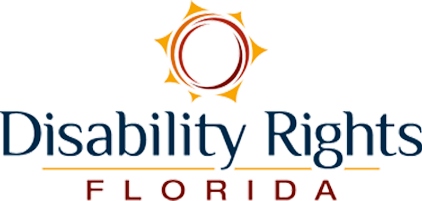Disability Resources by Category
Rights in a Civil Mental Health Facility
Florida's Mental Health Act (also known as the Baker Act) helps protect the rights of individuals in a civil mental health facility by outlining the Rights of Patients. The rights include the right to dignity, treatment, quality of treatment, communication, abuse reporting, visits, personal property, voting, and habeas corpus.
Mental health treatment programs are required by law to honor and help protect the rights of individuals who have a mental illness or psychiatric disability. Such programs are also required to include comprehensive health, social, educational, and rehabilitative services to people who need intensive short-term or longer mental health treatment. The law also requires the programs to encourage and support self-determination in treatment and recovery.
4 Ways to Report a Problem
- You have the right to use a facility internal grievance or complaint process any time you believe your rights have been violated.
- If you have been abused or neglected, you have the right to call the Florida Abuse Hotline at 1-800-962-2873 at any time
- You also have the right to file a Writ of Habeas corpus or a Petition for Redress of Grievance to question:
- being placed in a facility
- being denied a right or privilege
- being treated in a way that does not follow a proper procedure
- You may ask staff members at a facility to give you a copy of a Writ and help you file it with the Clerk of the County Court.
- You also have the right to contact an attorney or Disability Rights Florida to request assistance.
Rights Information in Detail
Here is a more complete list of the specific rights of individuals residing in civil mental health facilities, as stated in Florida law and rule:
- To be treated with dignity and respect
- To be free of abuse and neglect
- To be treated in the least restrictive setting
- To receive a physical examination within 24 hours after arrival
- To participate in the development of an individualized treatment plan and discharge plan
- To give express and informed consent to treatment by competent individuals
- To access a system for filing complaints
- To be free of seclusion and restraint unless imminent danger is evident
- To access a telephone to report abuse or speak to an attorney at anytime
- To access a telephone for private communication with family and friends unless such communication is deemed harmful
- To have immediate access by a person’s family, guardian, guardian advocate, representative, or attorney
- To have personal property and clothing inventoried upon admission and to receive a copy of the inventory
- To vote in national, state and municipal elections if eligible and registered to vote
- To contact the court to request a review of the reason and legality of his/her detention, a denial of a right or privilege, or a procedure that is not being followed
- To reasonable accommodations under the Americans with Disabilities Act (ADA)
- To protection of confidential records
- To have access to grounds unless restricted for medical or safety reasons
Links
Florida laws, rules, and operating procedures
- Florida Statute Section 394.459 - Rights of Patients
- Florida Rule of Administrative Code 65E-5.140 - Rights of Persons
- Florida Department of Children and Families Policies and Procedures for Mental Health and Substance Abuse
